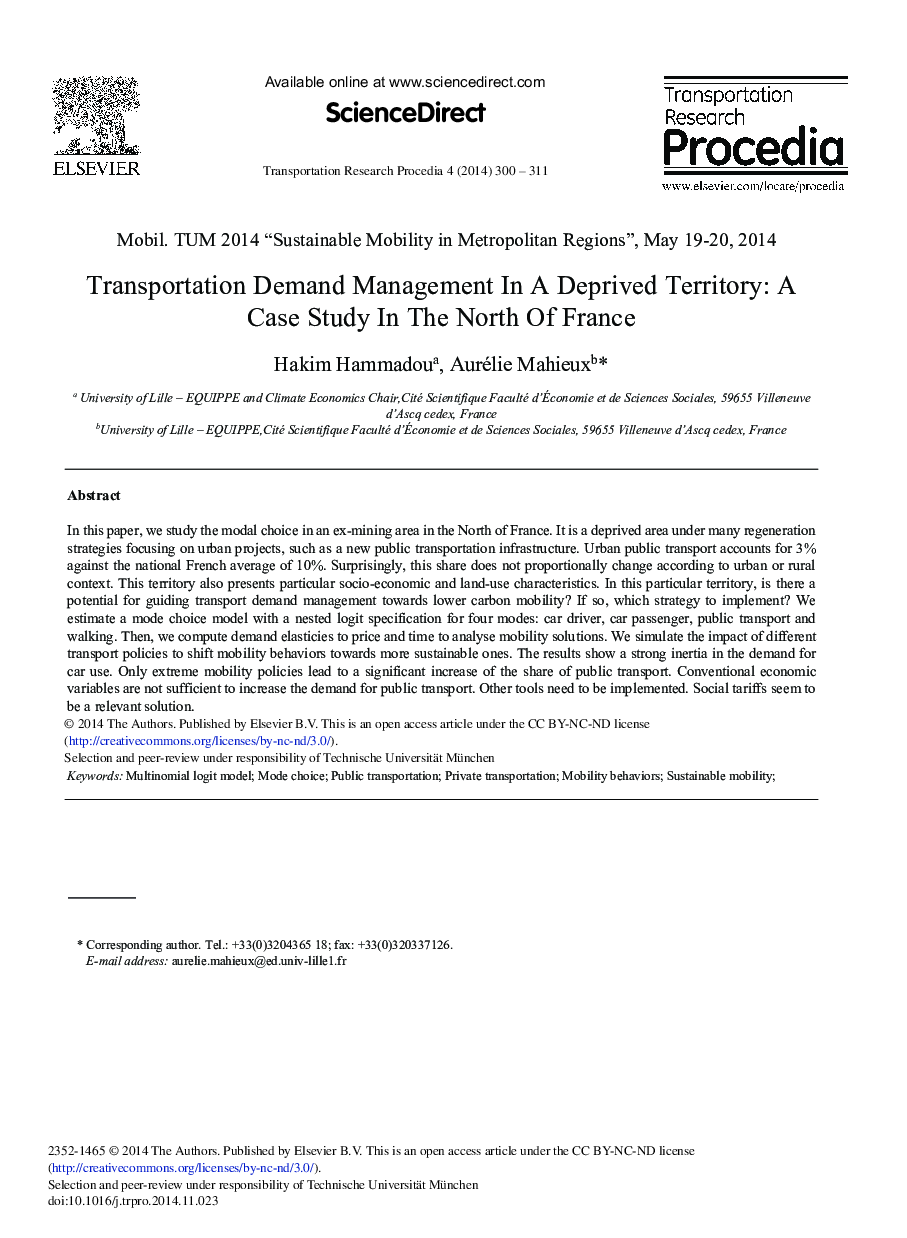| Article ID | Journal | Published Year | Pages | File Type |
|---|---|---|---|---|
| 1106332 | Transportation Research Procedia | 2014 | 12 Pages |
In this paper, we study the modal choice in an ex-mining area in the North of France. It is a deprived area under many regeneration strategies focusing on urban projects, such as a new public transportation infrastructure. Urban public transport accounts for 3% against the national French average of 10%. Surprisingly, this share does not proportionally change according to urban or rural context. This territory also presents particular socio-economic and land-use characteristics. In this particular territory, is there a potential for guiding transport demand management towards lower carbon mobility? If so, which strategy to implement? We estimate a mode choice model with a nested logit specification for four modes: car driver, car passenger, public transport and walking. Then, we compute demand elasticies to price and time to analyse mobility solutions. We simulate the impact of different transport policies to shift mobility behaviors towards more sustainable ones. The results show a strong inertia in the demand for car use. Only extreme mobility policies lead to a significant increase of the share of public transport. Conventional economic variables are not sufficient to increase the demand for public transport. Other tools need to be implemented. Social tariffs seem to be a relevant solution.
